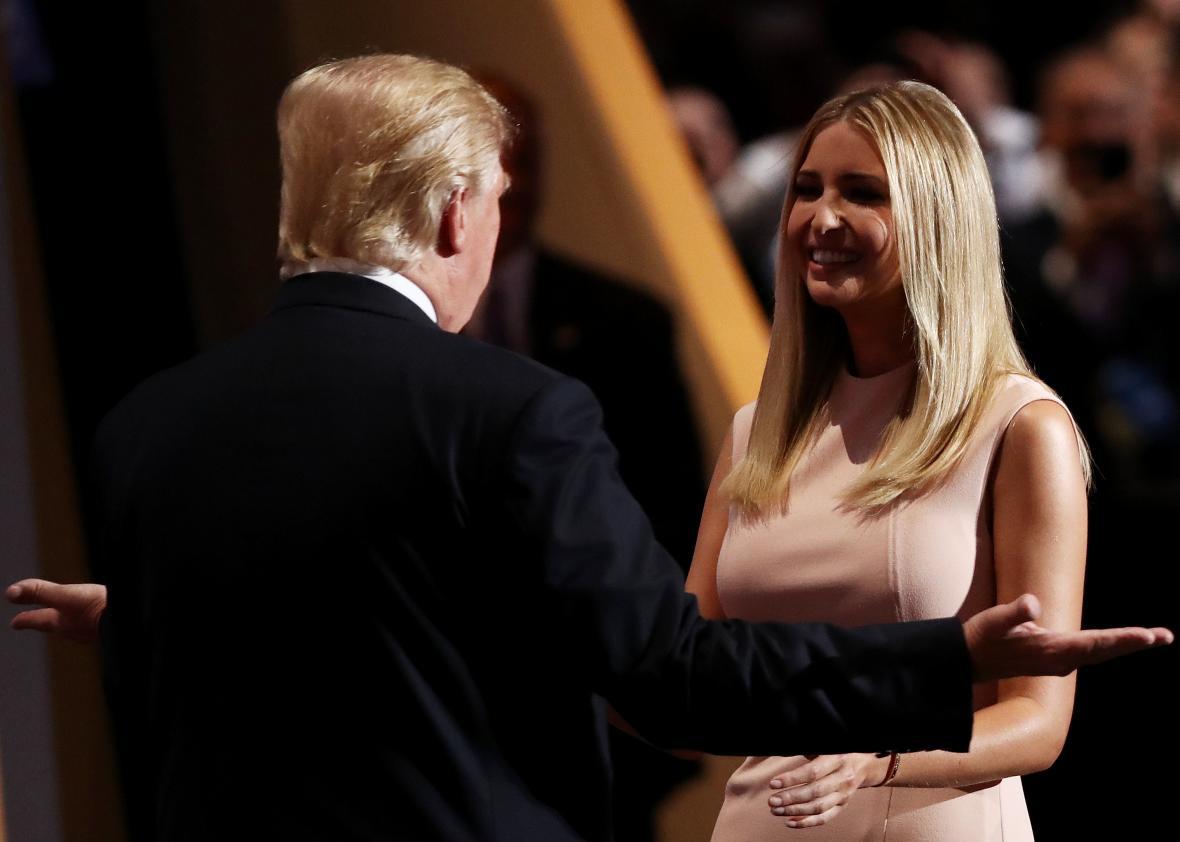Last week, Racked reported that Nordstrom was dropping the Ivanka Trump clothing label from its physical and online stores. As of Friday, it looked like Neiman Marcus was following suit, pulling Ivanka Trump–branded jewelry from its website and at least one store.
Though Nordstrom was the top target of Grab Your Wallet, a campaign that began in October to organize boycotts of companies affiliated with the Trump family, both retailers spun their inventory shifts in terms of business performance, not politics. “We’ve got thousands of brands … each year we cut about 10 percent and refresh our assortment with about the same amount,” a Nordstrom representative said to Racked. “In this case, based on the brand’s performance, we’ve decided not to buy it for this season.” In a statement, a Neiman Marcus spokesperson didn’t confirm that Ivanka’s line was out for good, but clarified that all the brand’s jewelry it carried was consigned—owned by the vendor but given shelf space in the store—and brand inventory gets regularly shaken up “based on productivity.”
Grab Your Wallet had Neiman Marcus on its boycott list for months, then dropped it when boycott participants noticed that Ivanka Trump jewelry was no longer on the site.* But it’s not hard to imagine that formerly indiscriminate jewelry consumers unaware of the boycott might still balk at the political implications of purchasing a bauble associated with a president who, among other things, has demonstrated no regard for democratic ideals. And Ivanka Trump’s products are intimately connected to her father’s presidency. Before Donald Trump took office, Ivanka used his campaign to promote her own fashion lines. She spoke at the 2016 Republican National Convention in a powder-pink sheath dress from her own brand; the next morning, she urged her Twitter followers to “shop Ivanka’s look from her #RNC speech,” sending them to a site where they could purchase the dress. She flaunted a conspicuous gold-and-diamond bangle on a Trump family 60 Minutes appearance soon after the election; the next day, a vice president from Ivanka’s company emailed journalists to promote sales of the bracelet, which happened to be from Ivanka’s own line.
It should be no surprise that the products Ivanka Trump sells are by turns boring and gaudy. If Donald Trump is, as Fran Lebowitz famously claimed, “a poor person’s idea of a rich person,” the Ivanka Trump brand sells a bland white-collar woman’s idea of a powerful lady boss who enjoys comfortably enclosed bits of fun like “a night out” and “date nights.” Ivanka Trump’s lines are incoherent, dull, dated, and largely manufactured outside the U.S. Department stores would be right to drop her products from their shelves even if she wasn’t essentially endorsing a white nationalist agenda on the world stage.
To head off any conflict-of-interest concerns, Ivanka resigned from her directorial and operational roles in her fashion brands when her father became president. But she hasn’t sold off the company; she still profits from its sales. This means that any company selling her goods—and any consumer buying them—is enriching a mitigating agent of a racist, authoritarian regime. And the success of Ivanka’s brand means more than immediate material wealth to the Trump family. Retailers that promote her products give her neutral, apolitical visibility. They give some measure of legitimacy and credibility to the family name, further enabling the overlap between national interests and the business interests of the president’s family. Ivanka herself has said that she chose not to call her company “Ivanka” because “there’s so much value in the Trump name … such a deep connection to luxury and success.” That way, “that product can be an entry point to our brand, a young woman who maybe buys a membership with her husband 10 years later at our golf course, or is staying at our hotels.” A tacky “imported” strappy sandal with an Ivanka Trump label is a gateway to a lifetime of disposable income channeled into the Trump family coffers.
It was this notion of enriching a family with a detestable ideology—plus a petition with more than 700,000 signatures—that convinced Macy’s to dump Donald Trump’s menswear line in 2015, after the then-candidate called Mexican immigrants drug dealers and rapists. “Macy’s is a company that stands for diversity and inclusion,” a representative from the retailer said at the time. “We are disappointed and distressed by recent remarks about immigrants from Mexico … who have made so many valuable contributions to the success of our nation.”
But Macy’s still carries Ivanka Trump shoes, giving consumers reason to wonder how committed the company is to its social and political ideals. Ivanka, with her seeming intelligence and glamour, made Donald Trump more palatable to wary voters; her poise and business success were direct contributors to his ascent to incomprehensible power. She didn’t call immigrants rapists, but she quit her company so the man who did could be president. As long as companies profit from the Trump name, they’re more likely to act in ways that legitimize and advance the Trump presidency—hence the blanket boycott of stores that carry Ivanka’s goods. The president’s favorite daughter has benefited from the “luxury and success” connotations of the Trump name. Now that she’s helped mainstream its association with Muslim bans and press suppression, she should suffer the consequences.
*Correction, Feb. 7, 2017: This post originally stated that Neiman Marcus was not on Grab Your Wallet’s boycott list. It was, until organizers dropped it on Feb. 3.
